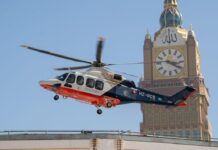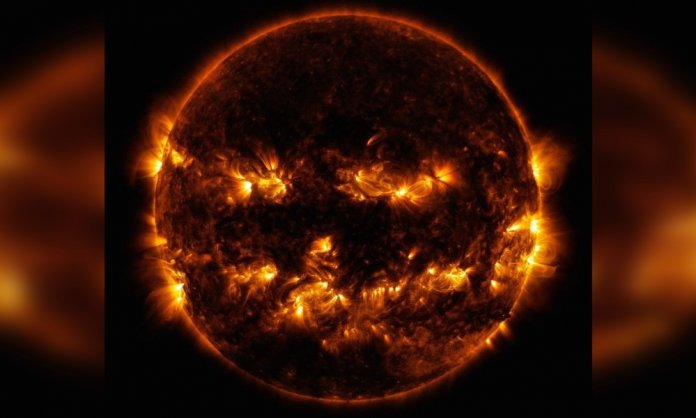An astronaut floats untethered in space. The sun smiles with a Halloween grin. A camera on the space station sees a single airplane below. These are all space-related images that border on the unreal, but no Photoshop or CGI was used to create them. Space is that crazy.
Even in the age of Photoshop, we can sometimes believe our eyes. Check out these spectacular space photos that look magical without being made-up.
View these images below:
1. Moon in front of the Earth
There’s a camera on NASA’s Deep Space Climate Observatory satellite that sits a million miles away from Earth. In 2015, it looked back at its home planet and captured a series of images showing the “dark side” of the moon as it passed between the camera and Earth. It’s an almost startling perspective from a satellite that has a primary mission of monitoring solar winds
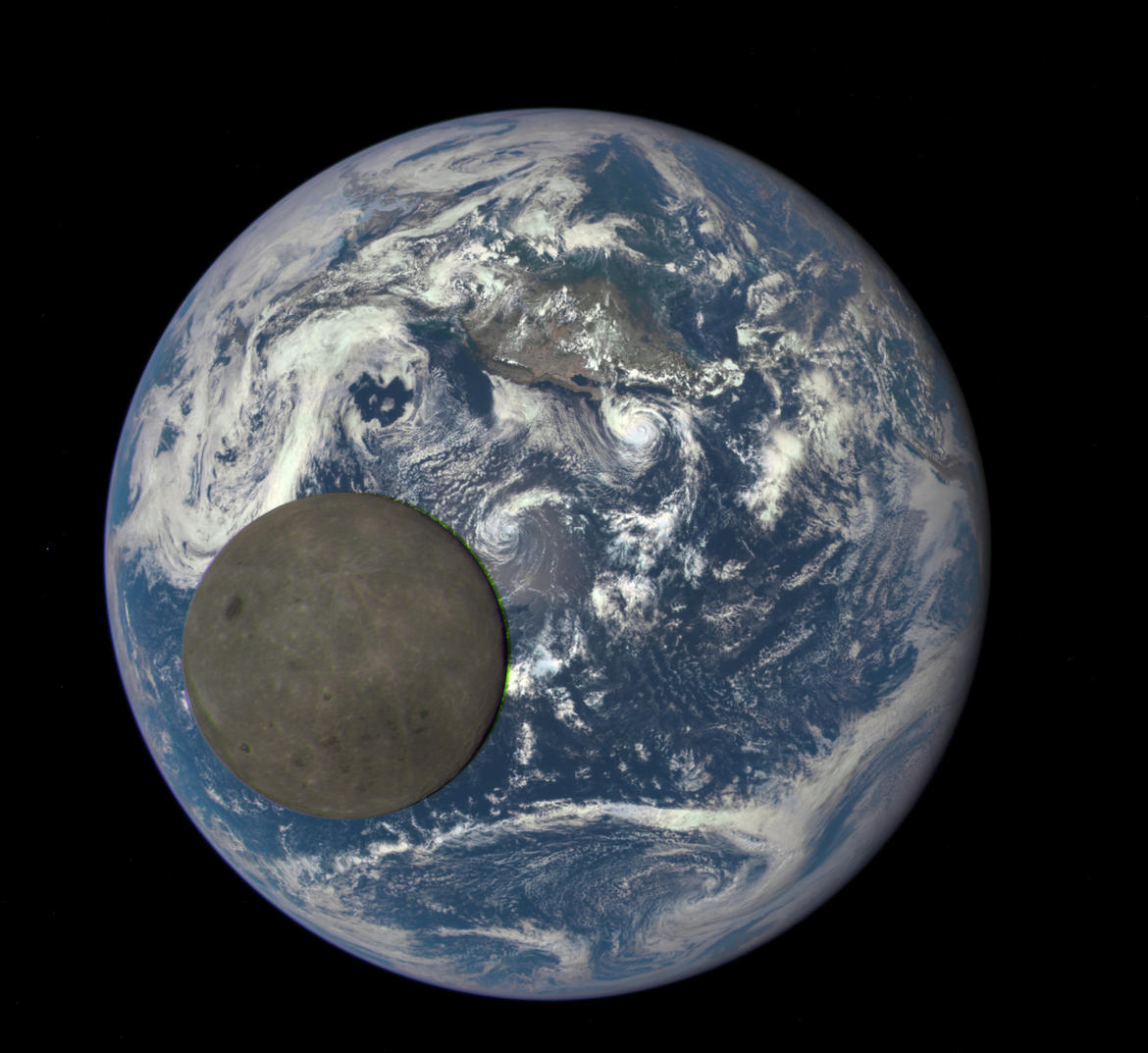
2. The space station and space shuttle
A person took this image. Look closely. You can see the International Space Station with the Space Shuttle Endeavour attached on the left side. So if both the ISS and the shuttle are in the image, then who took the photo? The answer is European Space Agency astronaut Paolo Nespoli. He was onboard a Soyuz TMA-20 that undocked from the station in 2011 to carry a crew of astronauts back to Earth. That gave Nespoli the freedom to snap this spectacular, unreal image.
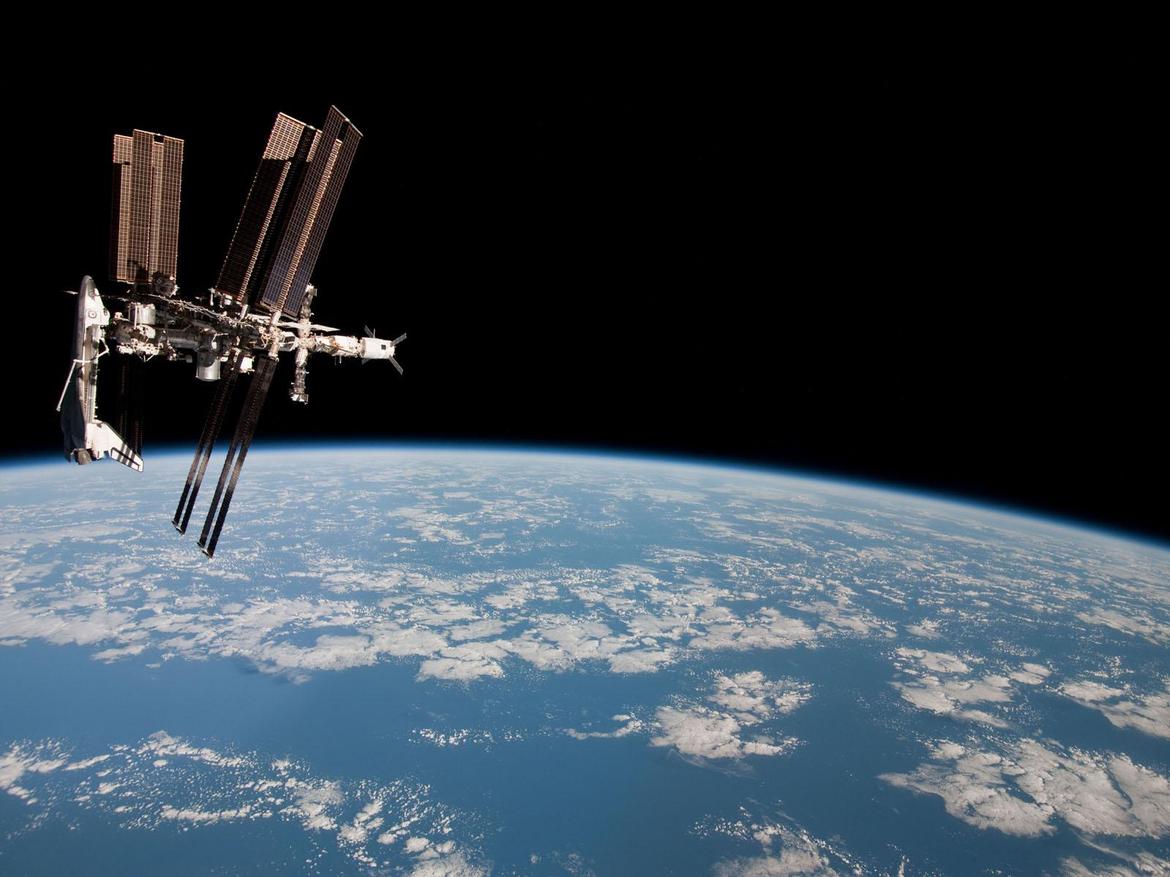
3. Jack-o’-lantern sun
It looks like a prankster got loose over at NASA, but this image of a freaky smiling face on the sun is just a fortunate coincidence. It comes from the Solar Dynamics Observatory, which imaged the sun in early October 2014 and caught it looking like a carved Halloween pumpkin.
The SDO sees things a bit differently than the human eye. The image blends two sets of wavelengths to create the orange glow. The facial features are active regions of greater light and energy.
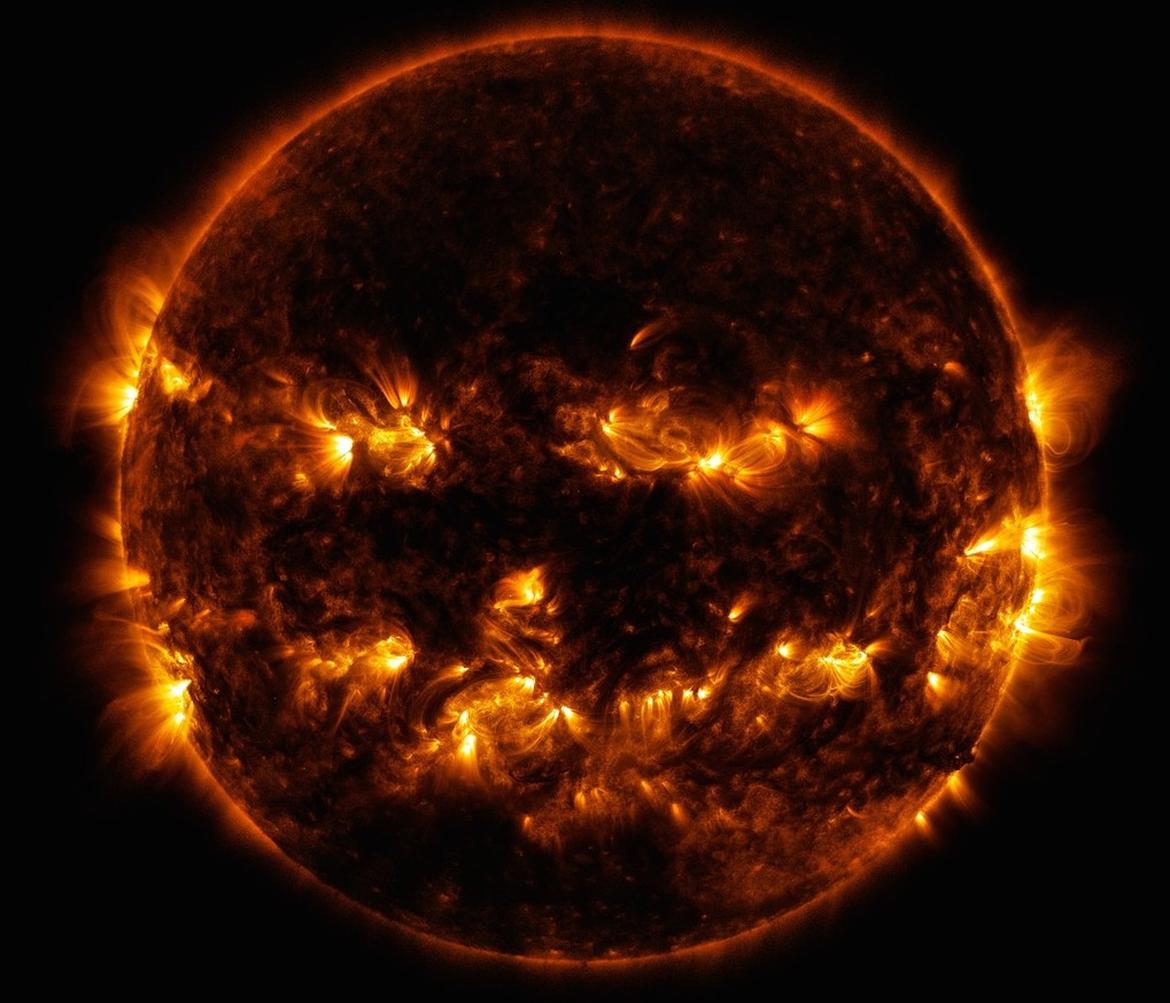
4. Alone in space
This isn’t a scene from the 2013 Sandra Bullock and George Clooney space thriller “Gravity.” This is a photo of NASA astronaut Bruce McCandlessroaming free in space after leaving the Space Shuttle Challenger. McCandless’ adventure in 1984 was made possible by a nitrogen jetpack called the Manned Maneuvering Unit. He maxed out at 320 feet away from the Challenger and made it back safely.
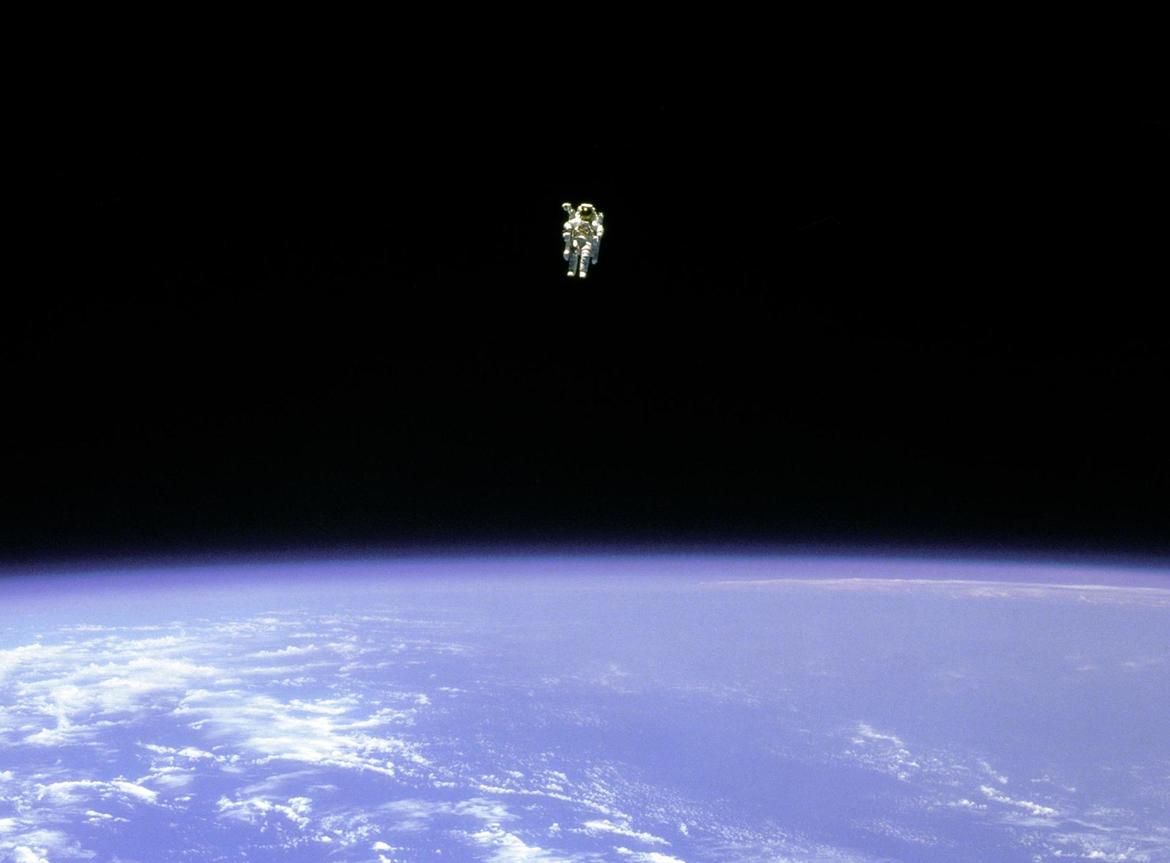
5. Amazing aurora
Auroras are a fascinating phenomenon involving swirling lights. When viewed from Earth, they light up the night sky and might make you think magical fairies exist. This image from the crew of Expedition 32 onboard the International Space Station in 2012 looks like the product of an artist’s imagination, but it’s real.
The piece of equipment in the center is a mechanical arm attached to the space station. These spectacular light shows are one of the perks of being an astronaut on the ISS.
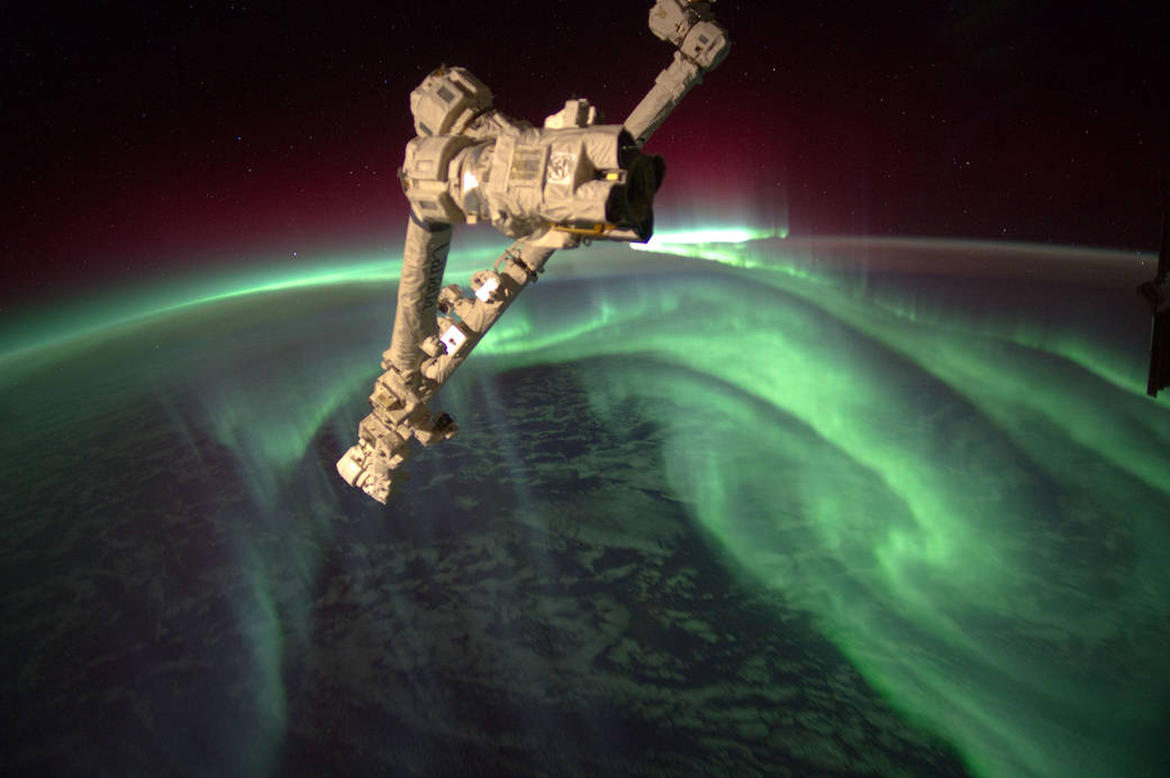
6. Earthrise
There will always be a specific subset of people who don’t believe humanity managed to reach the moon. Those people will doubt the veracity of this image, showing an Earthrise from the perspective of the Apollo 8 mission in 1968.
Apollo 8 was the first human-crewed mission to the moon. The view from there inspired command module pilot Jim Lovell to share this sentiment: “The vast loneliness is awe-inspiring, and it makes you realize just what you have back there on Earth.”
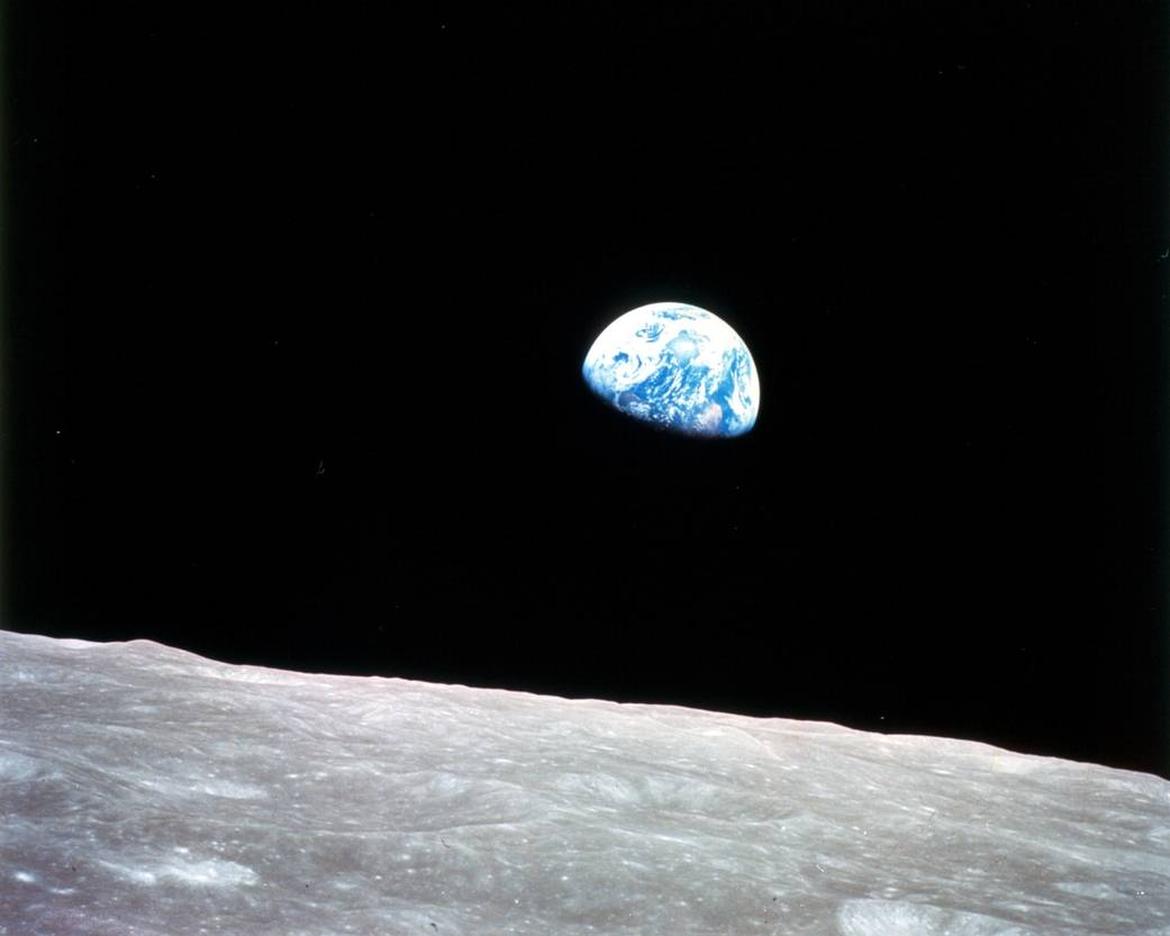
7. Spot the airplane
This image isn’t fake, it’s just really, really lucky. An astronaut aboard the space station in 2015looked down at Great Exuma Island in the Bahamas and snapped a picture of the jewel. The photo just so happens to also show an airplane with white contrails streaming out behind.
“Thanks to the astronaut’s steady hands in controlling a long lens in weightlessness, this photograph is detailed enough to show a single aircraft and its twin condensation trails,” NASA notes.
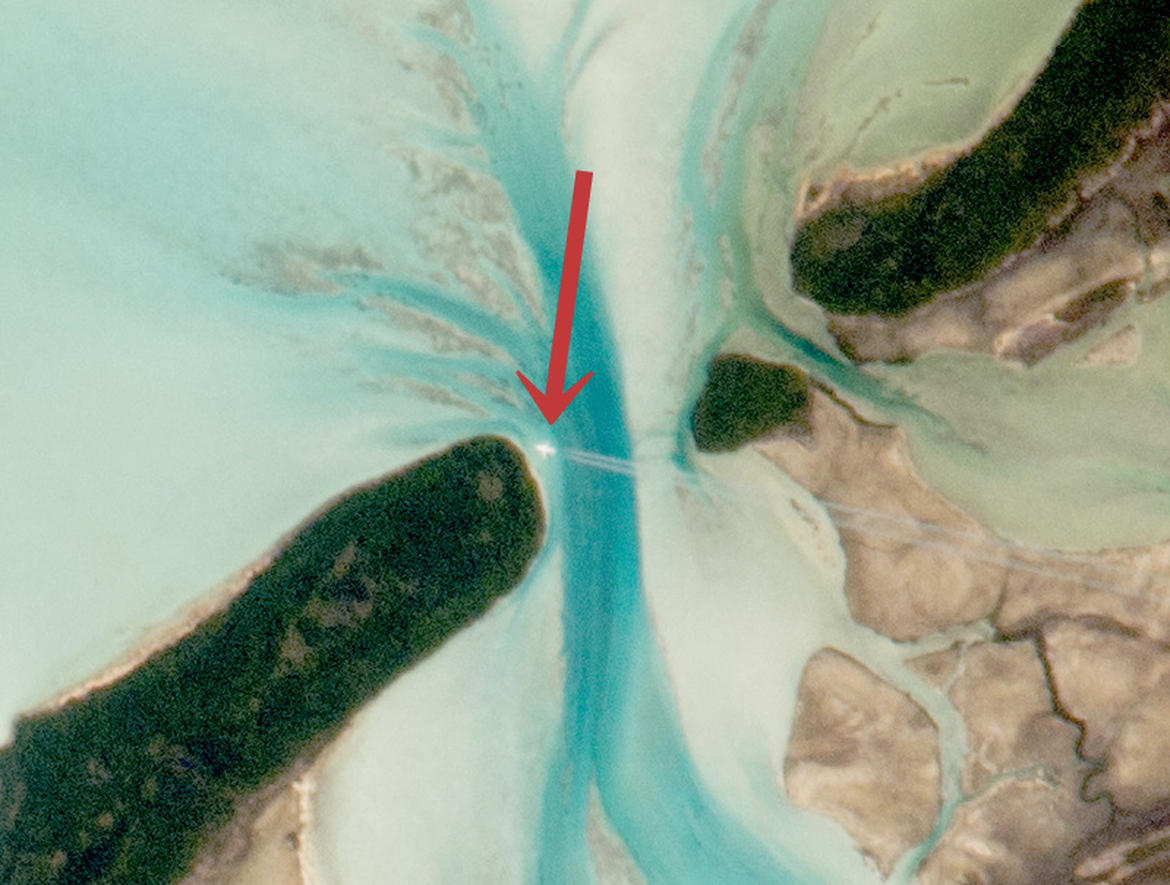
8. Death Star near Saturn
No, George Lucas isn’t laughing. That’s not the Death Star hanging around with Saturn’s rings in the background. It’s Saturn’s moon Mimas, which just so happens to have an 80-mile-wide (130 kilometers) crater called Herschel that looks an awful lot like the Death Star’s super laser focus lens. NASA’s Cassini spacecraft took this scenic shot of Mimas in 2005 as the sun lit up the crater.
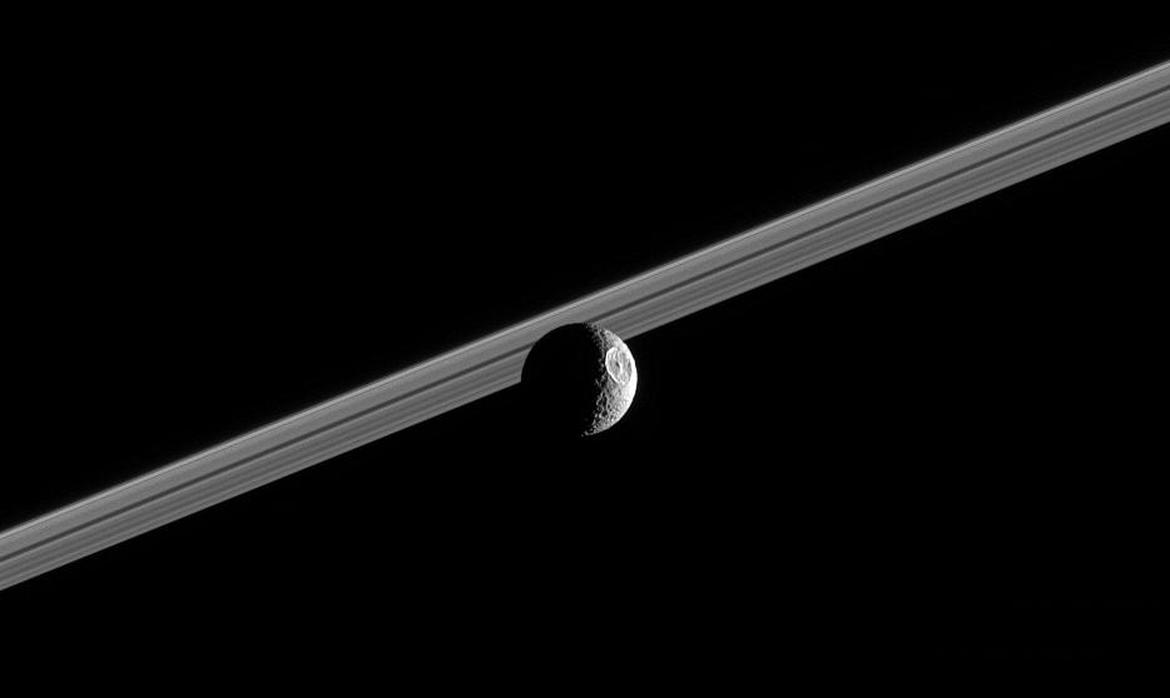
9. Space station transits the moon
It would be easy to open Photoshop, take a fantastic image of the moon and add the silhouette of the International Space Station to it, but that’s not what NASA photographer Bill Ingalls did. He went the hard way of patiently calculating what it would take to capture the ISS in transit across the moon and then carefully pulled off the rare feat. Look for the tiny “Z”-shaped dark spot near the upper right-center.
Ingalls took the challenging shot last summer, not long after Australian astrophotographer Dylan O’Donnell captured the ISS in front of a full moon.
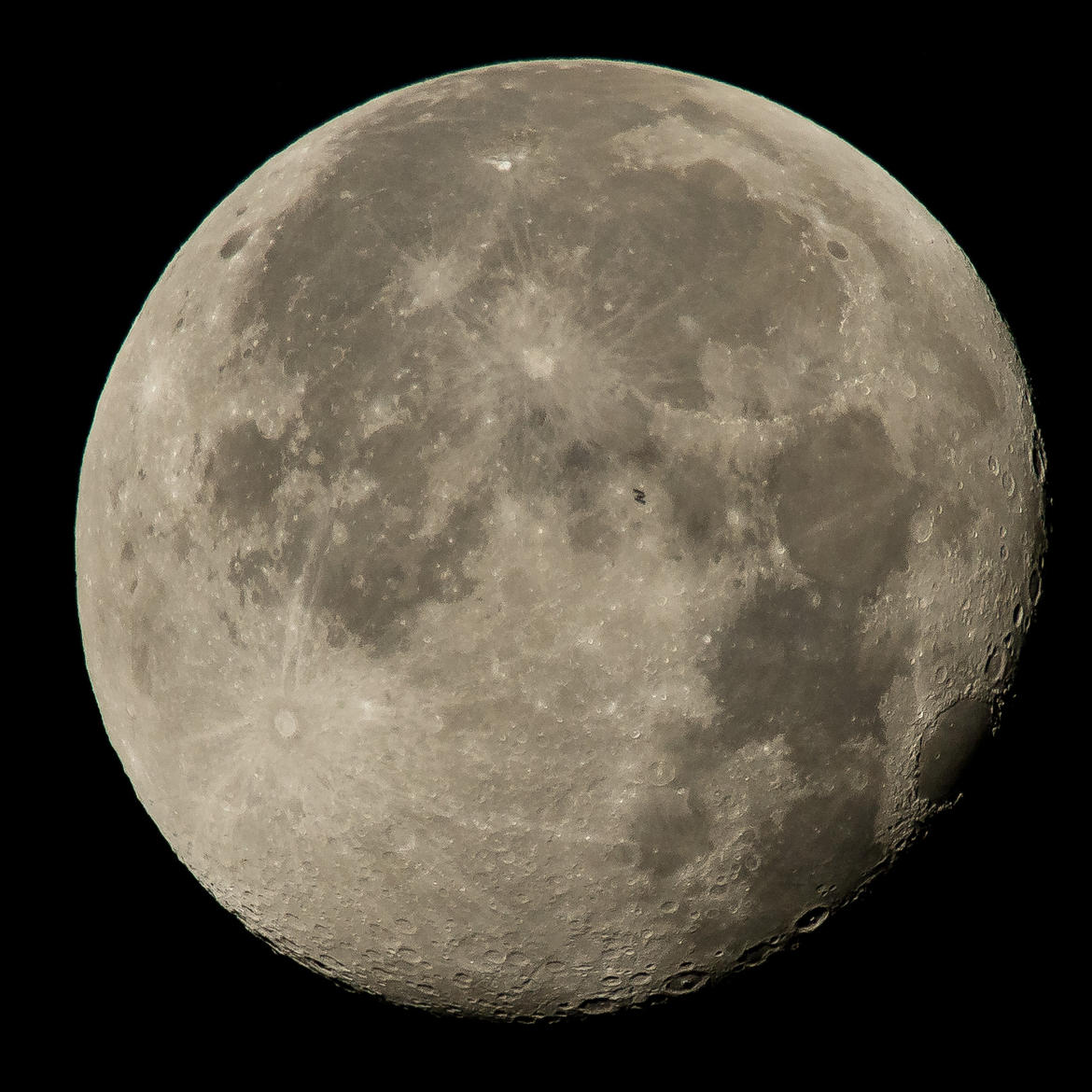
10. Red Rectangle in space
Space isn’t big on squares. There are lots of round planets and stars. Some nebulae spread out in cloudy lumps. What we don’t see are a lot of straight lines. That why space fans are fascinated by the Red Rectangle, a dying star with an unusual signature. This Hubble image from 2007 uses wavelengths of red light to highlight the gas emissions reaching out into the corners of a rectangle.
“The X-shape revealed in this image suggests that something is preventing the uniform expansion of the star’s atmosphere. Instead, a thick disc of dust probably surrounds the star, funneling the outflow into two wide cones. The edges of these show up as the diagonal lines,” explains the European Space Agency.
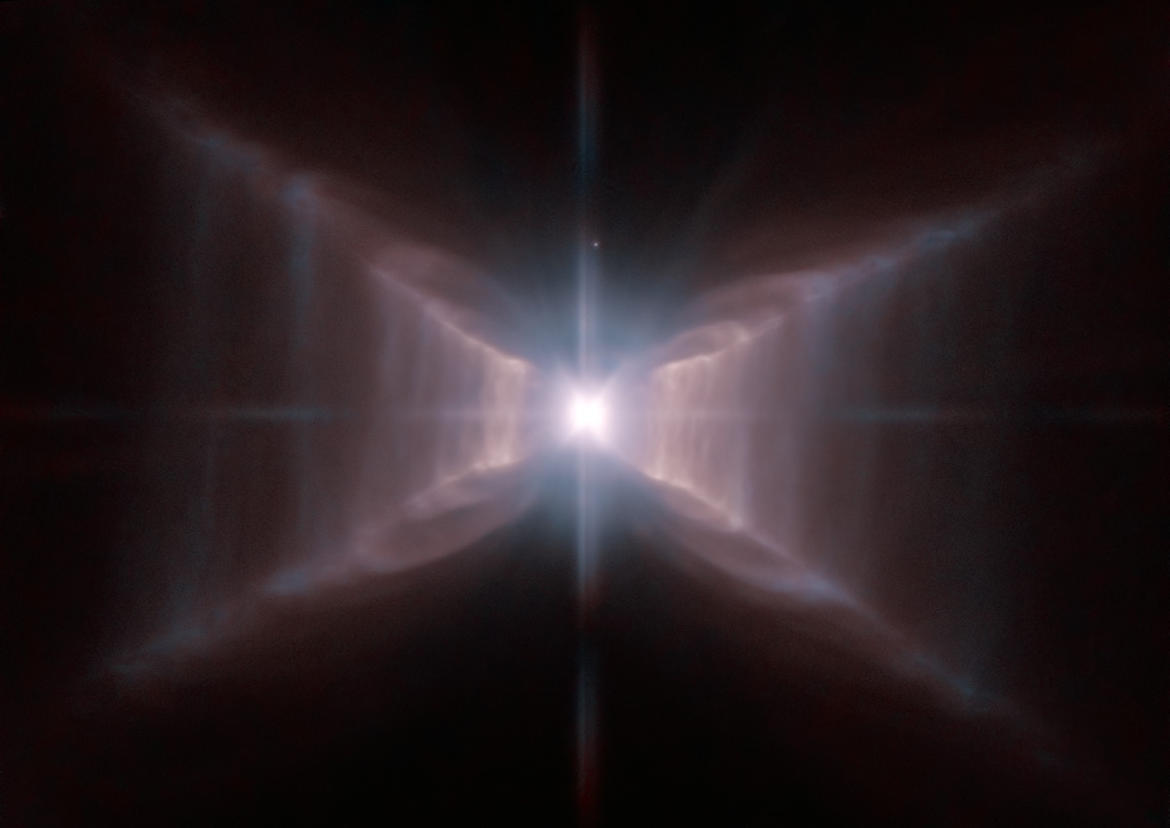
Bonus image: Startling blue in a field of white
Taken out of context, this image is perplexing. There’s an almost supernaturally blue blob in the middle of an area of white. What you see here is the Arctic in summer. The white is snow, and the blue splotch is a melt pond, as seen from a camera on NASA’s ER-2 airplane. The lake was located on top of an Alaskan glacier when the photo was taken in 2014.
This may not have been taken from space, but NASA research scientists use the ER-2 flies at about twice as high as commercial jets and the data it gathers.
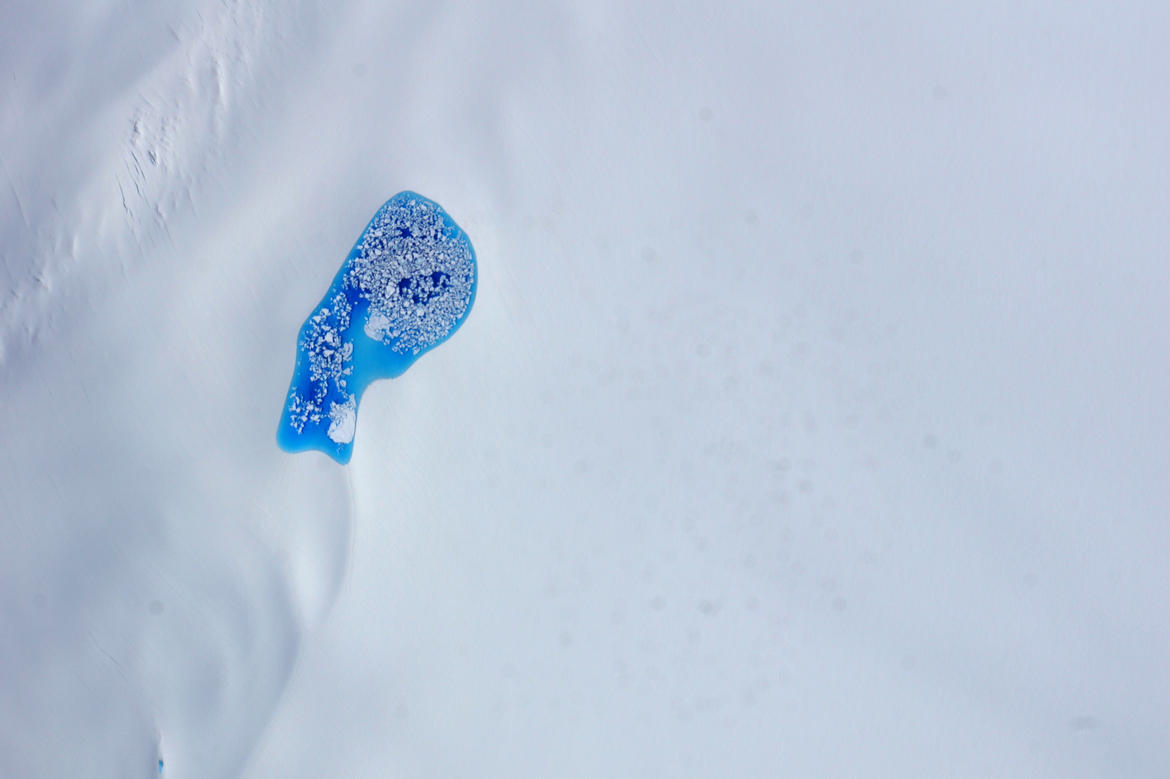
This post originally appeared on CNET.com.










































